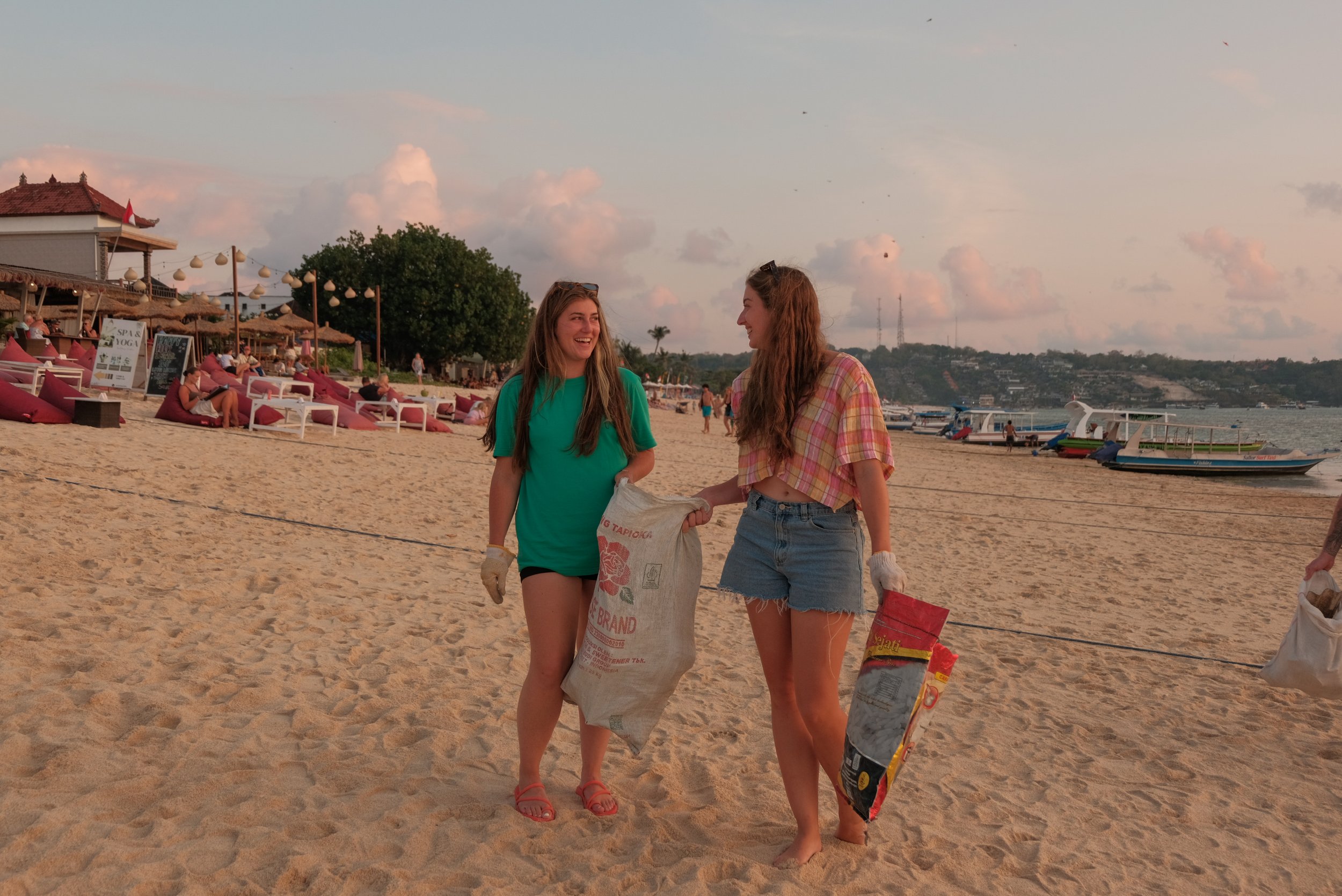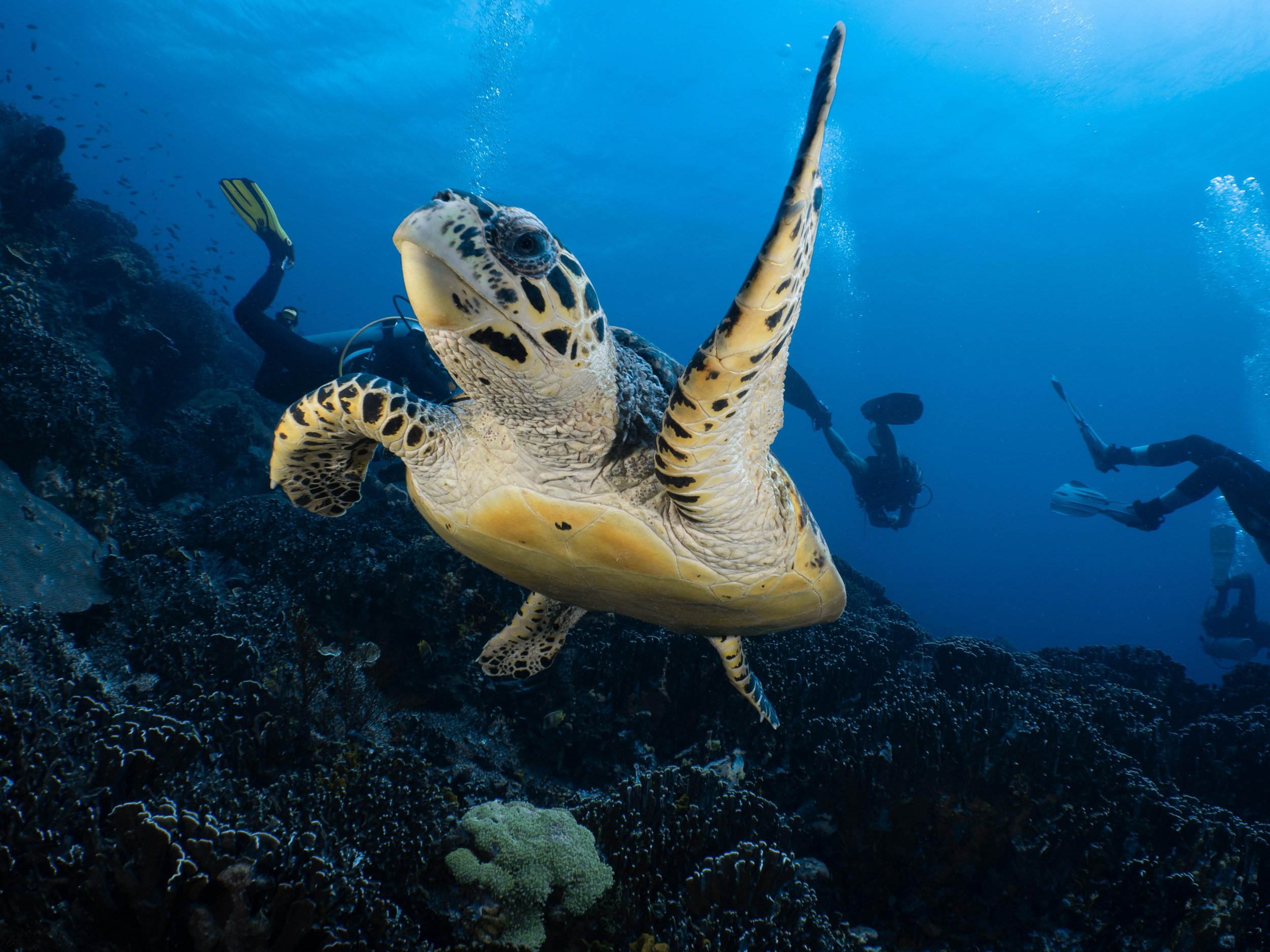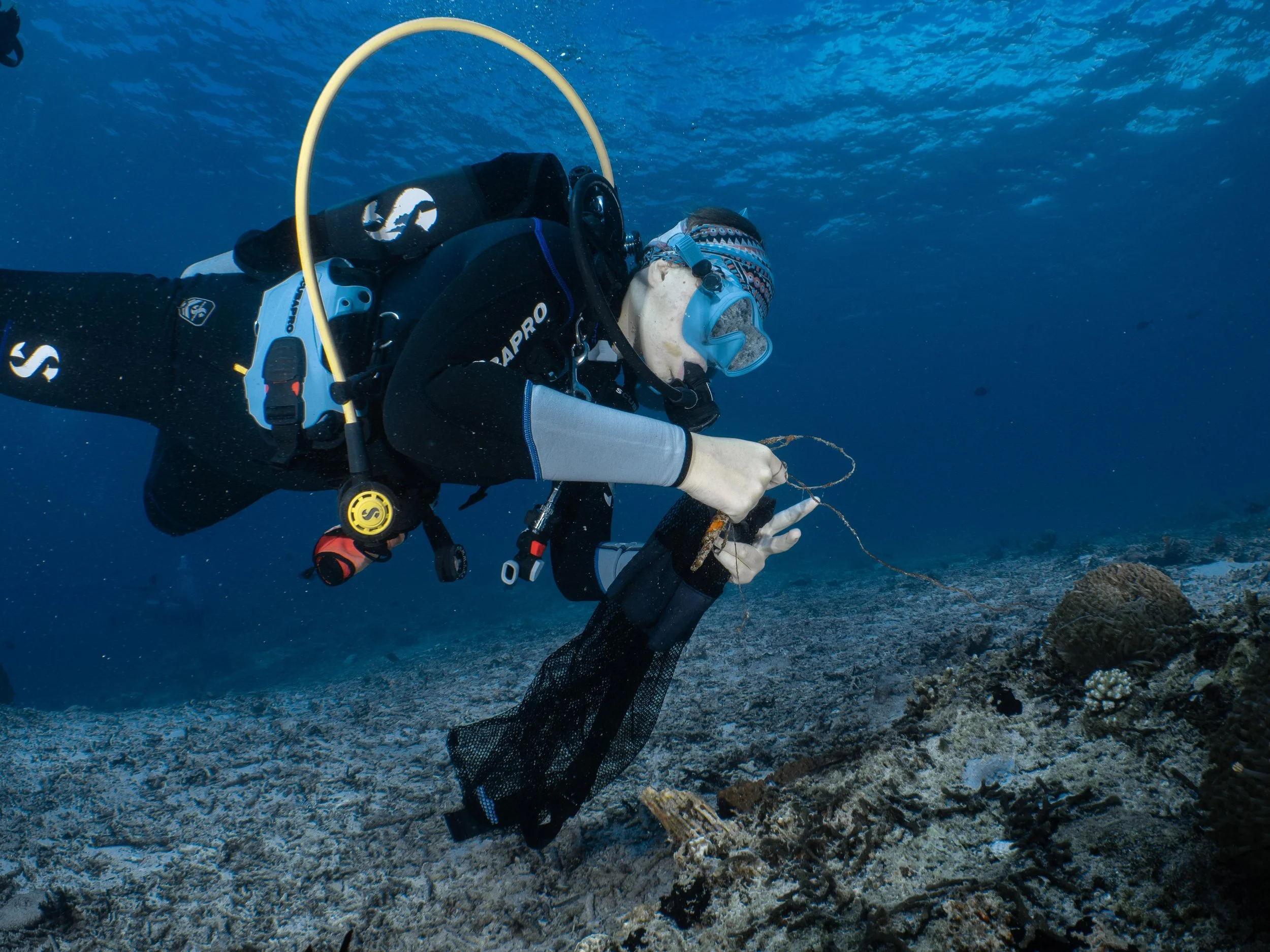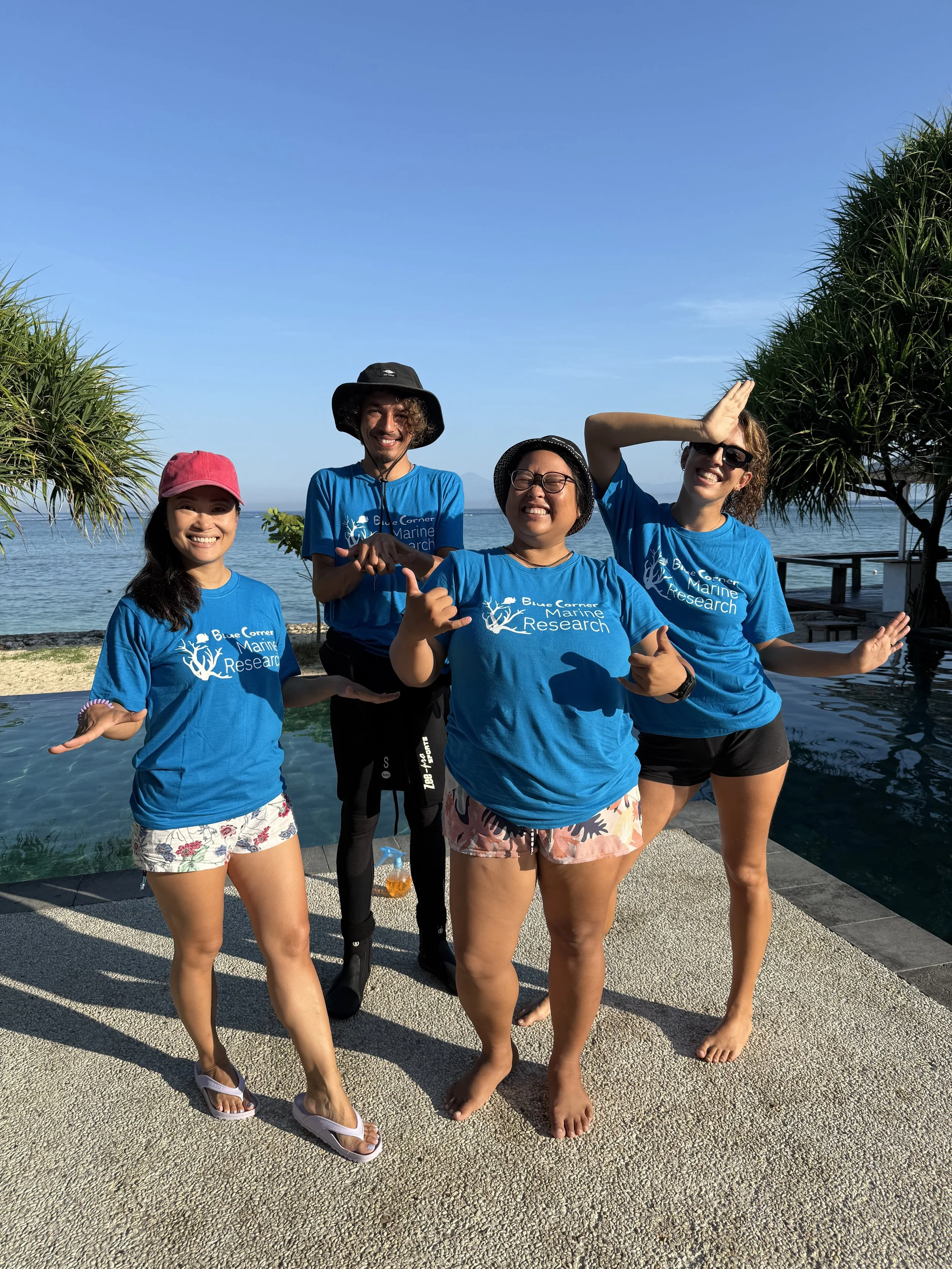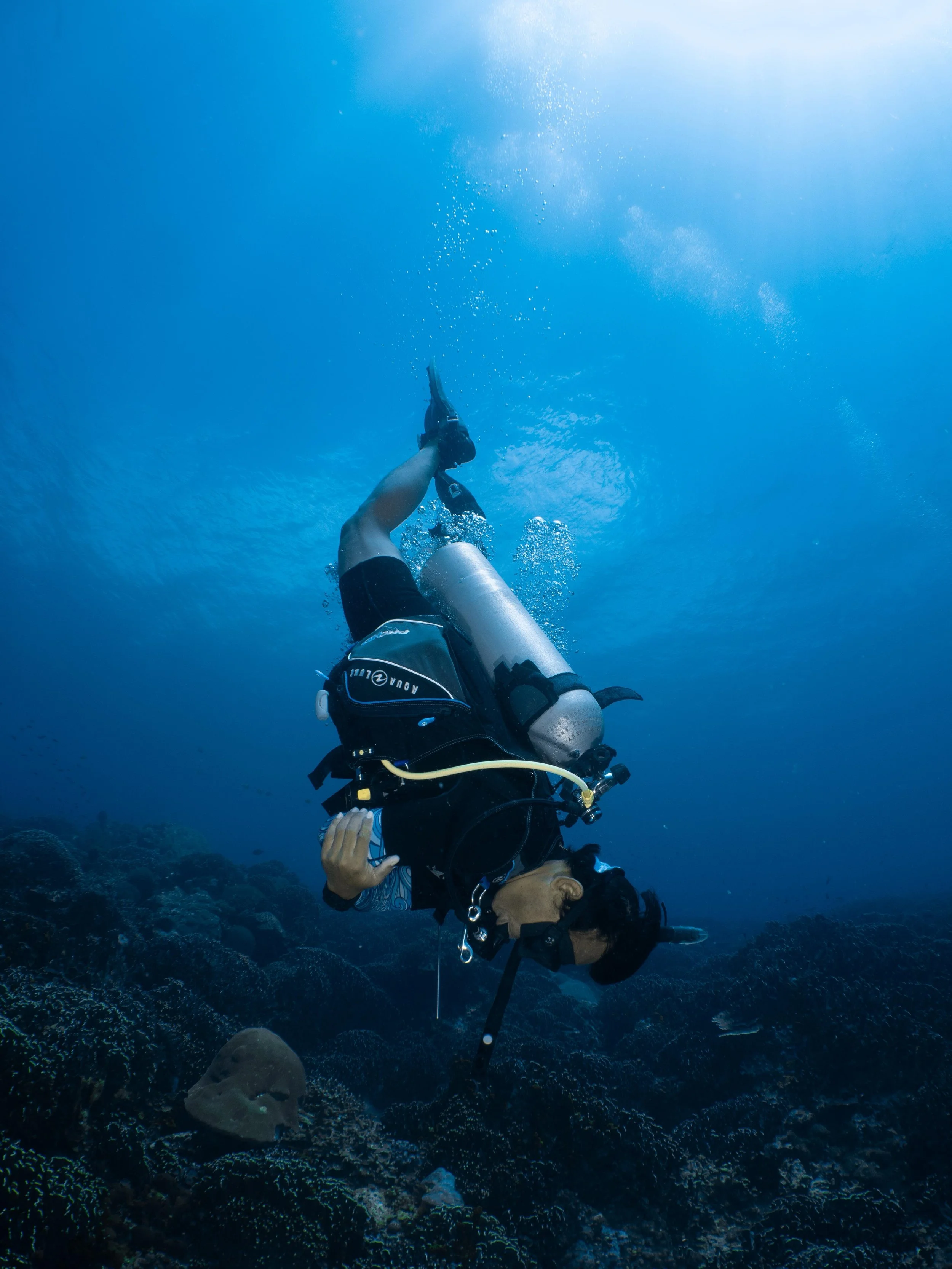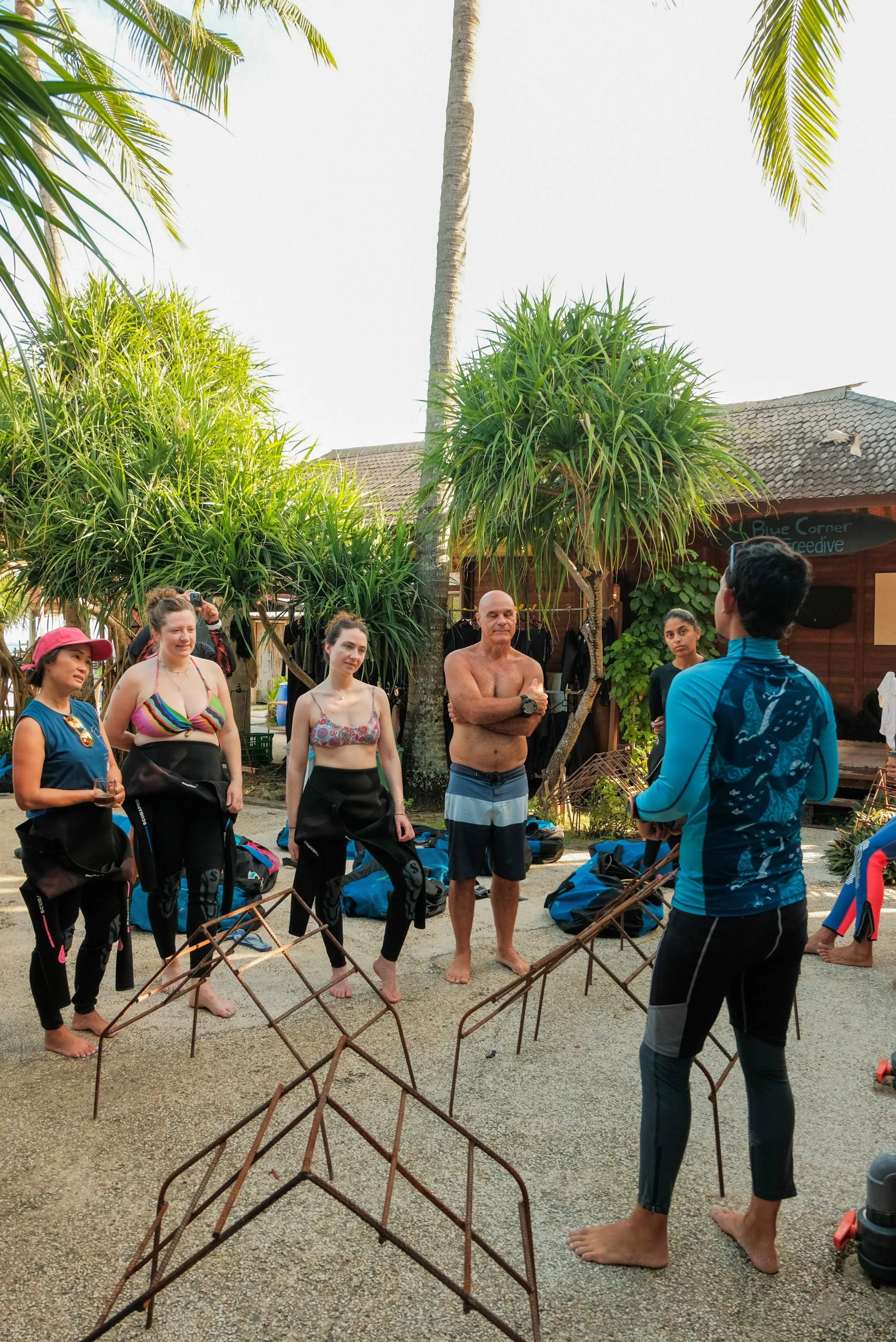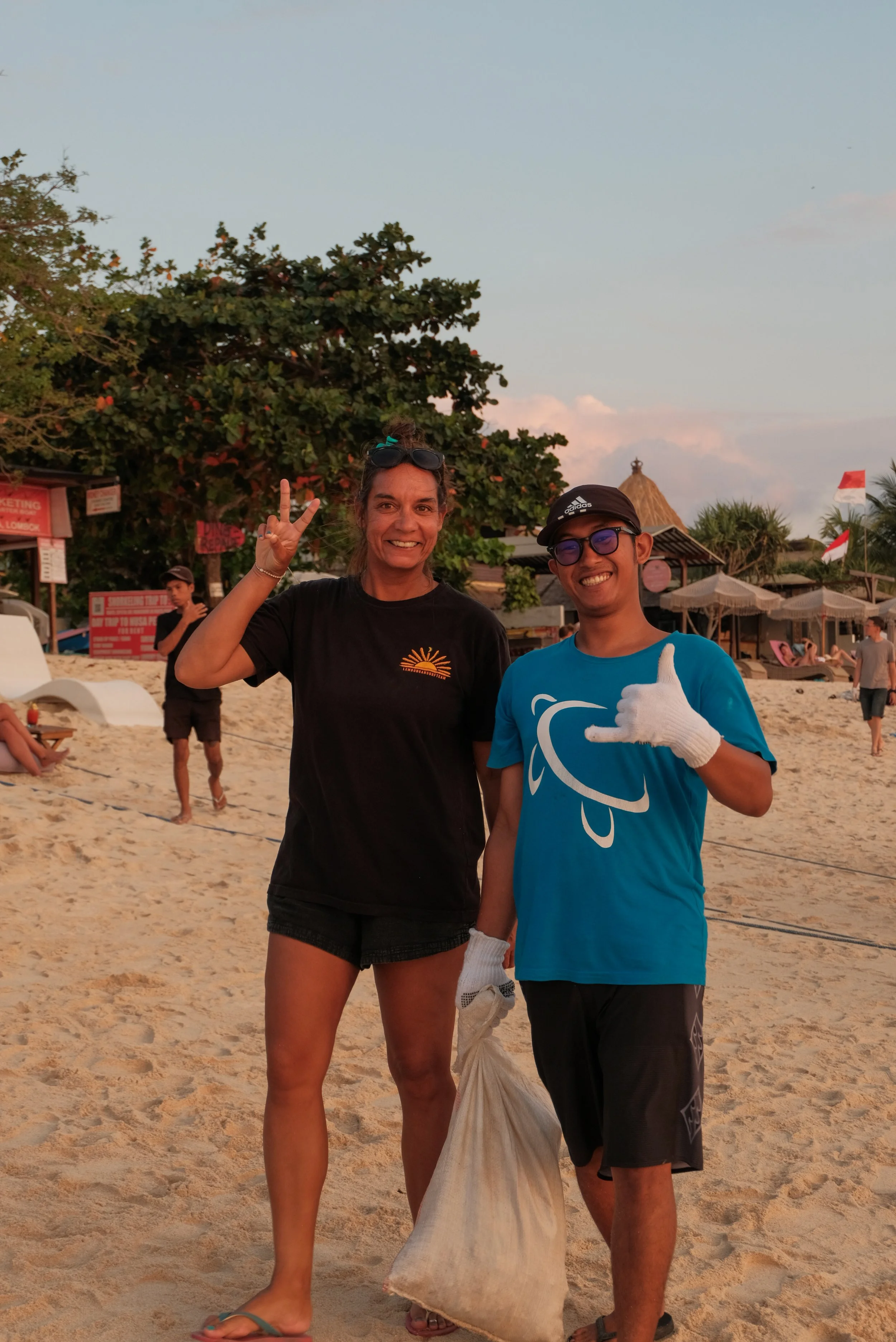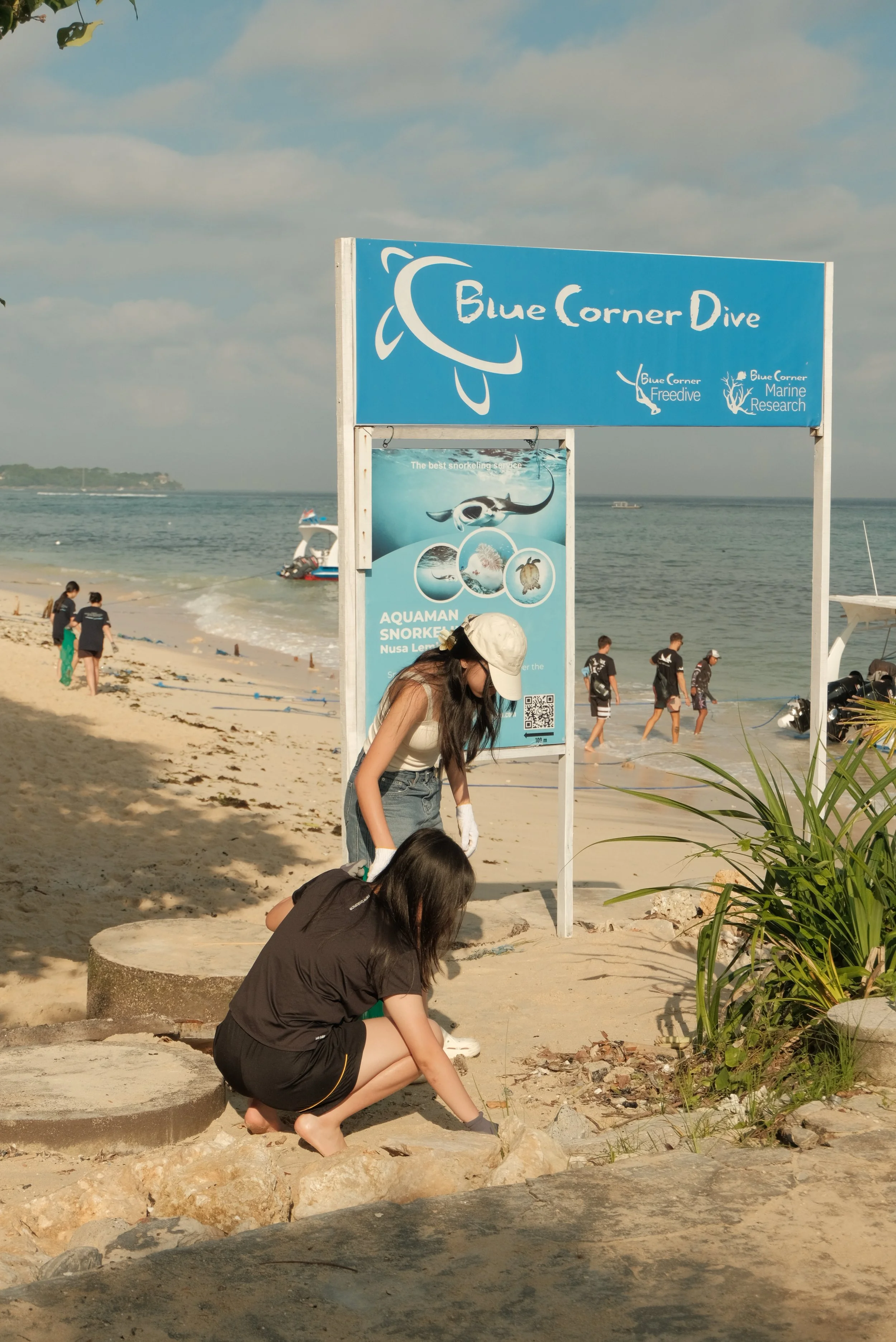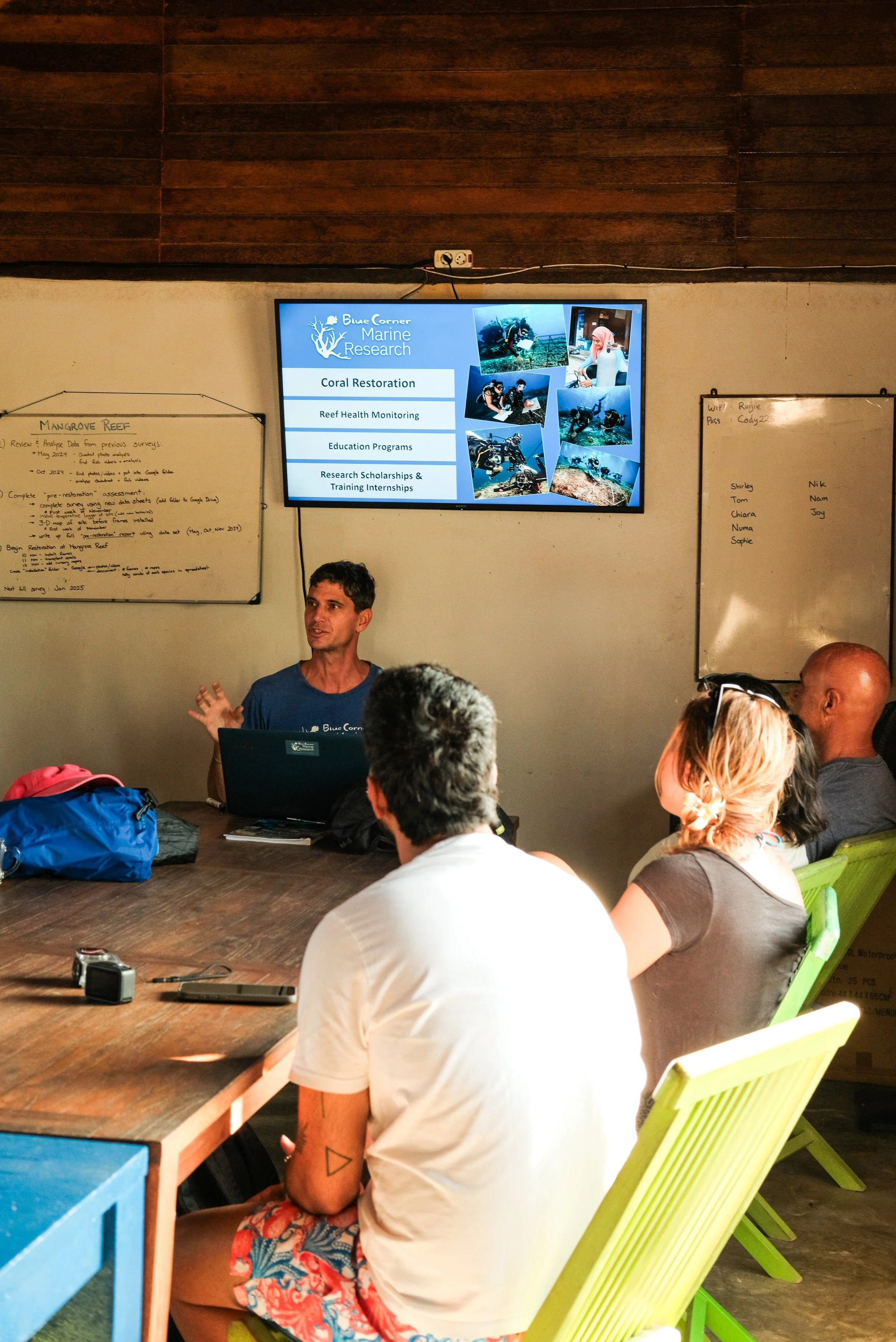Responsible Scuba Diving: Small Choices, Big Impact
One of the best things about diving is how close it brings you to marine life. You’re not just watching nature from a distance, you’re in it. Floating over coral, cruising in the current beside turtles, or finning through schools of fish feels magical. But with that privilege comes responsibility. Coral reefs and marine ecosystems are fragile, and divers play a big role in protecting them.
The good news is that being a responsible diver doesn’t require huge changes. It’s about awareness, small habits, and a bit of self-control underwater.
Here’s how you can make every dive count for the ocean.
Buoyancy is Everything
If there’s one skill that separates confident divers from clumsy ones, it’s buoyancy. Nail it, and you glide through the water effortlessly. Miss it, and you’re bouncing off the bottom or drifting into coral heads. Every fin kick matters! Bumping along the reef can damage coral that’s taken decades to grow.
Spending time refining buoyancy not only protects the reef but also makes your diving more effortless and enjoyable. Less struggle, more flow, and longer dives thanks to better air consumption.
If you feel rusty, there’s no shame in doing a refresher before your next trip. In fact, it shows respect for both the environment and your fellow divers.
Finning With Care
Think about the size of your kicks. Big scissor movements look dramatic, but they stir up sand, cloud the water, and sometimes bury delicate organisms living in the seabed. Controlled frog kicks or smaller flutter kicks are easier on the reef and keep the visibility crystal clear. Photographers will thank you for it.
If you’d like to take your buoyancy control and propulsion to the next level, the PADI Peak Performance Buoyancy Specialty is designed exactly for that. It helps you refine your trim, finning, and weighting so your diving feels smoother, easier, and much more reef-friendly.
Many divers say it’s the course that transformed the way they dive.
Streamline Your Gear
A dangling gauge or octopus can do more damage than you’d expect. Cameras, too. One careless swing and you’ve smashed into a sponge or knocked a coral branch. Before you descend, check your setup. Tuck hoses in, secure your octo, and keep your kit neat. That way, you’re not accidentally bulldozing the reef while focusing on the manta in front of you.
Skip the Chemicals
It’s easy to forget that what goes on your skin ends up in the water. Many sunscreens contain oxybenzone and other chemicals that are toxic to coral. Choose a reef-safe mineral sunscreen instead, or go with a long-sleeved rashguard to cut out the problem altogether. It’s a win-win: better for the reef, and you won’t spend the evening rubbing aloe vera onto sunburnt shoulders.
Hands Off
This one’s simple: don’t touch. Coral is alive, not a rock to steady yourself on. Fish and turtles aren’t there for a photo prop. Even a gentle pat can stress or injure them.
Divers often say,
“Take only photos, leave only bubbles.” This should go without saying, but don’t even think about taking any souvenirs other than photos and memories. The reef isn’t a gift shop. Leave shells, starfish, and everything else where they belong. That way, other divers get to enjoy them too. And the marine life will thank you!
Lead by Example
The way you dive influences the people around you. If you hover calmly, fin gently, and stay aware of your surroundings, others tend to mirror that behaviour. It’s a subtle but powerful way of protecting the reef without saying a word.
Beyond the Dive
Responsible diving doesn’t stop at the surface. However far you are from the ocean, choosing reusable water bottles, saying no to plastic straws, and picking up a piece of rubbish all help. Small actions add up, especially when an entire community of divers is involved.
If you want to go a step further, join local beach cleans or underwater clean-ups whenever you have the chance. They’re a great way to meet other divers, give back to the places you dive, and see the direct impact of your efforts. Supporting dive centres that prioritise conservation also ensures your money goes towards protecting the reefs and marine life you care about.
Go Further: Join a Conservation Program
If you want to take your impact beyond good diving habits, joining a conservation program is the next step. At Blue Corner Marine Research, we run hands-on projects right here in Nusa Lembongan. You’ll not only give back and contribute to real marine science, but you’ll also meet likeminded divers who share your passion for the ocean. The knowledge you gain means you can confidently share the conservation message with both divers and non-divers!
Becoming a true ambassador for the reef!
Take a look at the Blue Corner Dive conservation programs
The ocean gives us a lot. Incredible dives, unforgettable wildlife encounters, and a community that stretches across the globe. Giving back doesn’t mean grand gestures, it means making conscious choices on every dive and every day. That way, the reefs stay alive, the turtles keep cruising by, and future divers get to experience the same magic you did.

